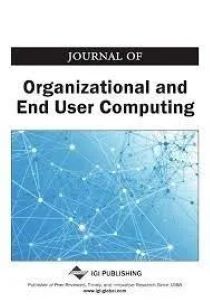Factors Affecting Customer Intention to Adopt a Mobile Chronic Disease Management Service: Differentiating Age Effect From Experiential Distance Perspective
IF 3.4
3区 管理学
Q2 COMPUTER SCIENCE, INFORMATION SYSTEMS
引用次数: 5
Abstract
The Mobile Chronic Disease Management Service (MCDMS) is an emerging medical service for chronic disease prevention and treatment, but limited attention has been paid to the factors that affect users’ intention to adopt the service. Based on the unified theory of acceptance and use of technology 2 and the protection motivation theory, the authors built an MCDMS adoption model. The authors also verified the differentiating age effect on the service adoption intention from experiential distance perspective of the construal level theory. Empirical results showed that the young group focused more on the impact of effort expectancy, whereas the elderly group focused more on performance expectancy, imitating others, and perceived severity. Furthermore, the young group, however, focused more on the impact of perceived vulnerability, and offline medical habits showed no significant influence on either group’s intention to adopt, which were not consistent with the original hypotheses. The findings can aid MCDMS providers in selecting marketing strategies targeted toward different age groups.影响顾客采用移动慢性病管理服务意愿的因素:从体验距离角度区分年龄效应
移动慢性病管理服务(MCDMS)是一种新兴的慢性病预防和治疗医疗服务,但影响用户采用该服务意愿的因素受到的关注有限。基于技术2接受与使用统一理论和保护动机理论,构建了MCDMS采用模型。作者还从解释水平理论的经验距离角度验证了年龄对服务采纳意愿的差异效应。实证结果表明,年轻人更关注努力预期的影响,而老年人更关注表现预期、模仿他人和感知严重性的影响。此外,年轻组更关注感知脆弱性的影响,线下医疗习惯对两组的采用意愿都没有显著影响,这与最初的假设不一致。研究结果可以帮助MCDMS供应商选择针对不同年龄组的营销策略。
本文章由计算机程序翻译,如有差异,请以英文原文为准。
求助全文
约1分钟内获得全文
求助全文
来源期刊

Journal of Organizational and End User Computing
COMPUTER SCIENCE, INFORMATION SYSTEMS-
CiteScore
6.00
自引率
9.20%
发文量
77
期刊介绍:
The Journal of Organizational and End User Computing (JOEUC) provides a forum to information technology educators, researchers, and practitioners to advance the practice and understanding of organizational and end user computing. The journal features a major emphasis on how to increase organizational and end user productivity and performance, and how to achieve organizational strategic and competitive advantage. JOEUC publishes full-length research manuscripts, insightful research and practice notes, and case studies from all areas of organizational and end user computing that are selected after a rigorous blind review by experts in the field.
 求助内容:
求助内容: 应助结果提醒方式:
应助结果提醒方式:


